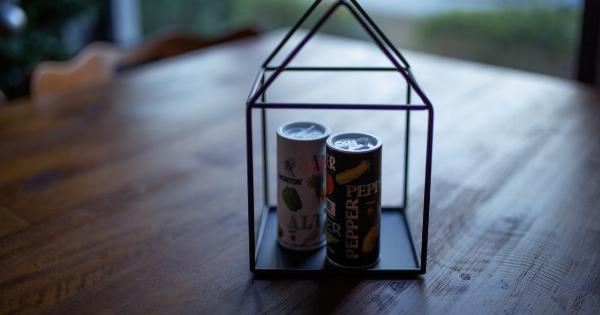Pregnancy is a very crucial period in a woman’s life where she needs to be extra cautious about everything she eats or drinks. One of the most common questions asked by pregnant women is whether or not it is safe to consume coffee while pregnant.
Coffee is one of the most widely consumed beverages around the world and a significant source of caffeine intake. Caffeine is a stimulant that can cross the placenta and affect the developing fetus. In this article, we will explore the effects of caffeine on pregnancy and help you make an informed decision on whether or not to consume coffee while pregnant.
What is caffeine, and how does it affect pregnancy?
Caffeine is a naturally occurring stimulant that is found in coffee, tea, chocolate, and some energy drinks. It is a central nervous system stimulant that can help people stay alert, improve concentration and even elevate mood.
However, caffeine is also a diuretic that can cause dehydration and increase the frequency of urination.
Studies conducted on caffeine intake during pregnancy have shown that caffeine can cross the placental barrier and cause various effects on the developing fetus.
The developing fetus has a limited capacity to metabolize caffeine, and therefore high caffeine intake can result in increased fetal exposure to caffeine.
How much caffeine is safe during pregnancy?
Several organizations including World Health Organization (WHO) and American College of Obstetricians and Gynecologists (ACOG) have provided guidelines regarding safe caffeine intake during pregnancy.
According to WHO, a maximum intake of 300 mg of caffeine per day is considered safe during pregnancy. The ACOG, on the other hand, recommends that pregnant women limit their caffeine intake to less than 200 mg per day.
The caffeine content of a typical cup of coffee varies depending on the type of coffee and its preparation method. A cup of brewed coffee contains an average of 95 mg of caffeine, while an espresso shot contains about 64 mg of caffeine.
Instant coffee, on the other hand, contains about 31 mg of caffeine per serving.
While these guidelines provide some level of guidance, it is important to note that caffeine affects each individual differently.
Some women may be more sensitive to caffeine than others, and their body’s ability to break down caffeine also varies.
What are the risks of consuming too much caffeine while pregnant?
Consuming too much caffeine while pregnant can increase the risk of various complications, including:.
- Miscarriage: Studies have shown that high caffeine intake can increase the risk of miscarriage, especially during the first trimester.
- Preterm birth: High caffeine intake has also been linked to an increased risk of preterm birth.
- Low birth weight: Pregnant women who consume too much caffeine may also have a higher risk of giving birth to a baby with low birth weight. Low birth weight increases the risk of various health complications in the infant, including developmental delays, infections, and even death.
- Behavioral and developmental issues: Studies have suggested that high caffeine intake during pregnancy can be associated with hyperactivity, attention deficit hyperactivity disorder (ADHD), and other behavioral issues in children.
What are the alternatives to coffee during pregnancy?
If you are pregnant and looking for alternatives to coffee, here are some options you may consider:.
- Tea: Many types of tea contain less caffeine than coffee and are a great alternative. Herbal teas, such as ginger, peppermint, and chamomile, are also a great option.
- Decaffeinated coffee: Decaffeinated coffee contains a very small amount of caffeine and is considered safe to consume during pregnancy.
- Fruit juice: Drinking fruit juice is a great way to stay hydrated while also getting your daily dose of vitamins and minerals.
- Water: Drinking plenty of water is necessary during pregnancy, and it is the best way to stay hydrated.
When should you consult your doctor?
If you are pregnant and have concerns about your caffeine intake, you should consult your doctor. Your doctor can help you determine the right amount of caffeine intake based on your individual health status and the health of your developing fetus.
They can also guide you on safer alternatives to coffee or tea during pregnancy.
Conclusion
While caffeine is not entirely off-limits during pregnancy, it is recommended that pregnant women limit their caffeine intake to a safe level.
Consuming too much caffeine can increase the risk of several complications during pregnancy and affect the development of the fetus. Instead, pregnant women can opt for alternative beverages that contain less caffeine or no caffeine at all. If you have concerns about your caffeine intake during pregnancy, it is crucial that you consult your doctor.




























